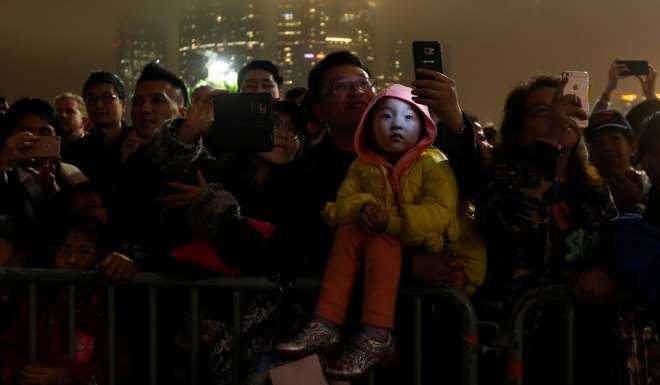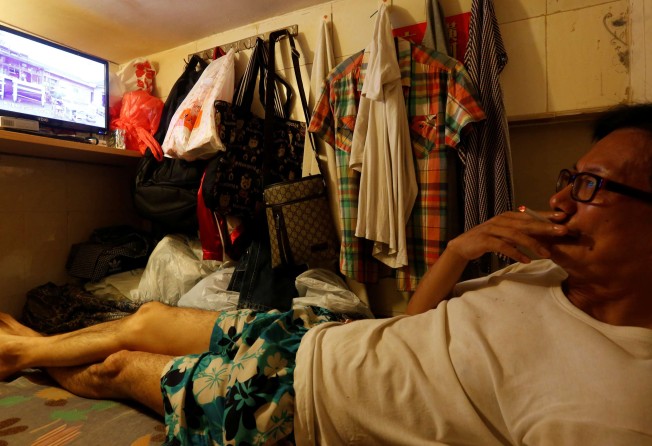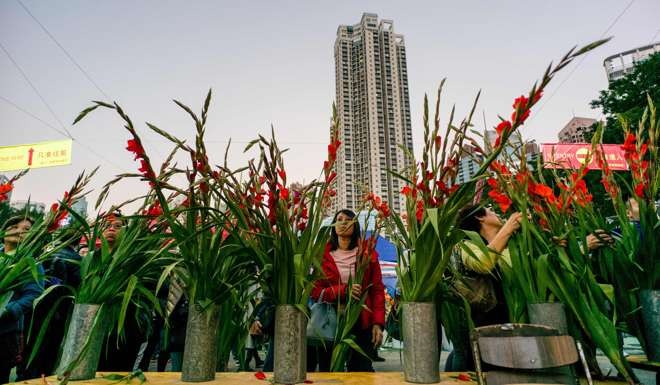
Provide more public housing to make Hong Kong people happier
Paul Yip and Joanne Hsu say a recent study shows that welfare support such as CSSA and public housing can raise people’s life satisfaction

In recent years, the topic of people’s well-being has received an increasing amount of attention. In 2011, the United Nations recognised the pursuit of happiness to be a fundamental human goal. It called on all governments to promote people’s well-being as part of their policy aims.
How does Hong Kong fare in this respect? In the 2016 Word Happiness Report, the city placed 75th among 156 countries and regions. The city has experienced impressive economic growth in the past two decades, yet a great many people here are dissatisfied with their lives. In particular, the Occupy Central movement in 2014 highlighted the social and political concerns among our young people. What is missing, and how we can promote well-being in Hong Kong?

There is no lack of research on the subject. In a study released last year, the Bauhinia Foundation Research Centre found that although per capita gross domestic product grew by 56.9 per cent between 2000 and 2015, the “Bauhinia Well-being Index” it formulated increased by only 0.4 per cent.
The Centre for Suicide Research and Prevention recently conducted a study on the life satisfaction of Hong Kong people, based on the data collected by the Hong Kong Panel Study of Social Dynamics. Our analysis showed that, at the individual level, men, unmarried people, new immigrants from the mainland and smokers had lower levels of life satisfaction; young people were more satisfied than the middle-aged and the elderly; professionals and those not in the labour force (including the retired) had higher levels of life satisfaction, and so did people engaging in regular religious activities.
At the family level, families who receive Comprehensive Social Security Assistance (CSSA) and whose income falls below the poverty line were less satisfied with their lives; private home owners were more satisfied than public housing residents, but private tenants had the lowest level of life satisfaction.

At the community level, people living in areas with higher poverty rates, higher levels of deprivation and social fragmentation, and more elderly people had lower levels of life satisfaction. Generally speaking, deprivation at the individual, family and community level all had negative effects on a person’s life satisfaction.
Support for disadvantaged groups is not only needed economically, but also important for their mental health
We further examined the interaction between family- and community-level factors. The results showed that families who did not receive CSSA reported lower life satisfaction if they were living in areas with higher poverty rates and higher levels of deprivation and social fragmentation. Yet, families receiving CSSA had higher satisfaction levels if they lived in those areas. It seems that people are more satisfied when living around other families with similar socioeconomic conditions to their own.
We also analysed the data based on the different types of housing tenure –private home owner, public housing resident and private tenant. The results showed that poverty rates, deprivation and the ageing population had a smaller effect on public housing residents than on private home owners and private tenants. This showed that the provision of public housing was beneficial to socio-economically vulnerable families. It can help to reduce the adverse effects of disadvantaged community-level factors on life satisfaction.
Watch: ‘Coffin homes’ sprout in Hong Kong
This is particularly important in Hong Kong, where property prices are high. The latest Demographia survey confirmed once again that the city topped the table for unaffordable housing; it takes 19 years to pay off the mortgage for a medium-sized apartment in Hong Kong.
Our research suggests that the government should strengthen its social welfare policies, such as CSSA and public housing. Such support for disadvantaged groups is not only needed economically, but also important for their life satisfaction and mental health.
The recent government-sponsored project to turn an idle building into housing for low-income earners has shown very encouraging results.
Finally, though some of the individual and family characteristics would be difficult to change, community resources can and should be mobilised to help modify area characteristics, to help boost happiness.
At the start of Year of the Rooster, as Hong Kong gets ready to choose its next chief executive, we hope that society can come together to face these challenges. Happiness is contagious. Let’s do more to create a happy society for Hong Kong.
Paul Yip is chair professor of population health in the Department of Social Work and Social Administration and director of the Centre for Suicide Research and Prevention at the University of Hong Kong. Joanne Hsu is a PhD student in HKU’s Department of Social Work and Social Administration